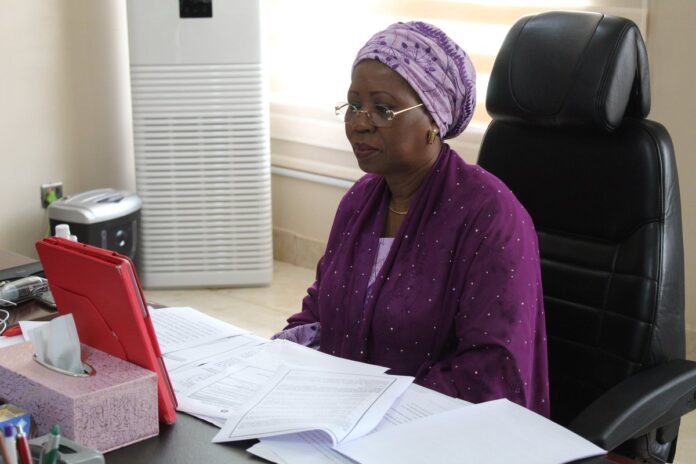By Chris Ndibe
Nigeria has reported that the ongoing review of the National Policy on Micro, Small and Medium Enterprises (MSMEs), will take cognisance of reforms, innovation and harmonisation of MSMEs categorisation.
Amb. Mariam Katagum, Minister of State for Industry, Trade and Investment, said this on Tuesday at a virtual meeting in commemoration of the 2020 edition of the World MSMEs Day.
Katagum said that the review would also accommodate reforms that took place in the sector within the last five years to provide robust framework for stakeholders in the ecosystem to make informed decisions on interventions and business planning, among others.
She said that the Federal Government had continued to explore interventions to cushion the effects of the economic downtime, especially on small businesses by providing palliatives to enable recovery, sustenance and improvements.
She listed some of the interventions to include ongoing implementation of the Central Bank of Nigeria (CBN), COVID-19 Targeted Credit Facility (TCF), intervention fund of N50 billion and N2.3 trillion Economic Sustainability Plan (ESP).
Katagum said that under the ESP, the government was planning to implement the Guaranteed Off-take Scheme and MSMEs Survival Fund adding that the interventions were designed to guarantee recovery and stability of businesses.
She commended the efforts of relevant stakeholders within the MSMEs space who had made it possible to mark the 2020 event in spite of the Global COVID-19 pandemic.
According to the minister, MSMEs make up over 90 per cent of all businesses in the world and account, on average, for 60 per cent to 70 per cent of total employment and 50 per cent of Gross Domestic Product (GDP), worldwide.
Katagum noted that in Nigeria the MSMEs sector accounted for about 76 per cent of the nation’s labour force and contributed about 50 per cent to the GDP.
“The sector also plays a pivotal role in stimulating economic growth and providing employment to vulnerable groups such as the youth, women and the poor.
“This informed the commitment and sustained interest by the Federal Government of Nigeria in repositioning the sector for efficiency, growth and development,” she said.
The minister expressed regret that the COVID-19 pandemic had brought severe adverse economic shocks all around the world.
According to the Ambassador, it made businesses to witness supply chain disruptions and low demand for products and services, which in turn have resulted in substantial revenue loss.
This, she said, had complicated the challenges of the vulnerable MSMEs sector, making the sector one of the most adversely affected by the economic fall-out of the pandemic.
Also, Director-General of SMEDAN Umaru Dikko noted that the intervention of the federal government was centred on micro and small businesses.
Mr Femi Pedro, SMEDAN’s Board Chairman, however, expressed diasatisfaction that most MSMEs had been struggling to survive before the COVID-19 pandemic and sought for more support.




